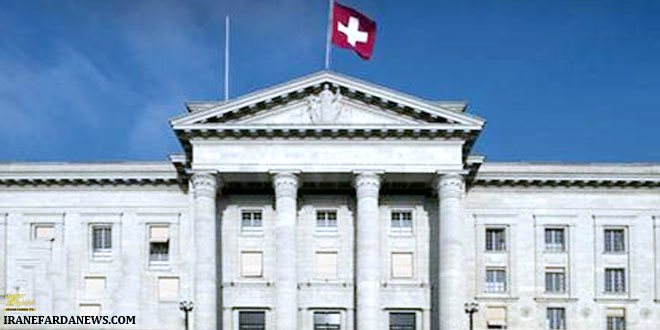
By: Tim Daiss August, 14th 2016
The Swiss Federal Tribunal, Switzerland’s highest court, ordered Israel to pay $1.1 billion plus interest to Iran in a decades old dispute over a secretive oil pipeline predating Iran’s 1979 Islamic revolution. The verdict was dated June 27, while media broke the story late last week.
Until the Islamic revolution and the fall of the Pahlavi dynasty in 1979, Israel and Iran maintained close ties. In fact, after the Six-Day War (1967 Arab-Israeli War), Iran supplied a large part of Israel’s oil demand while Israel returned the favor.
When Egypt blocked the Suez Canal, making Iranian oil transport impossible to Europe by tanker, Israel allowed Iranian oil to be shipped 158 miles (254 km) to the Mediterranean Sea via the Eilat-Ashkelon pipeline where it could unload at Eilat, a Red Sea port, then delivered to European markets.
The pipeline was a project of the Eilat-Ashkelon Pipeline Company (EAPC), an Israeli-Iranian joint venture set up in 1968. The joint venture pipeline was operational for a decade though it never reached maximum capacity of handling 60 million tons of crude per year.
According to the EAPC corporate website, the pipeline system serves as a land bridge for transporting crude oil from the Red Sea to the Mediterranean and vice versa. The crude oil pipeline system consists of three separate pipelines.
After the fall of the Shah of Iran, however, Israel and Iran became the region’s most stringent antagonists and bitter enemies. In the ensuing years, EAPC grew into a large energy company with considerable assets, now mostly handling oil from former Soviet states. EAPC is the largest oil distributor in Israel and is closely controlled by the Israeli government.
Iran first pursued the arbitration case in 1994 in France, then in Switzerland, demanding its share of the company’s revenues and assets that remained in Israel.
Israeli media said that Iran had tried for years to recoup its disputed assets from EAPC, despite decades of refusing to recognize Israel.
Israel Haymon News said that it remains unclear whether Israel will pay up, given its laws restricting “trading with the enemy.” Lawyers from both countries have failed to comment on the verdict.
“We should not forget that Nasser [Egypt’s president at the time] was totally aware of the impact of his action on the economy of Iran,” Reza Yeganehshakib, a professor of Middle Eastern studies at Fullerton College and a geopolitical and energy analyst told me on Monday.
“He never had amicable feelings towards Persians. Perhaps if not the very first person, he was the first Arab leader that opposed the term Persian Gulf and attributed it to the Arabs,” Yeganehshakib said.
“Even after the six-day war, Iran continued using the Eilat-Ashkelon pipeline because Nasser could not be trusted, while it was also a cooperation ground for Shah with Israel. While publicly opposing Israel’s boycott, the Shah was always in favor of peace between Egypt and Israel.”
Yeganehshakib cited a February 19, 1975 report where the Shah assured Israel that if they gave the Sinai back to Egypt, Iran would supply Israel with the oil they would lose from the Abu Rudeis oil fields in the Sinai.
Since last year, Iran has emerged from Western sanctions placed on its energy sector due to Tehran’s nuclear ambitions and is currently battling Saudi Arabia for oil market share both in Europe and Asia.
 khalijefars News, Blogs, Art and Community
khalijefars News, Blogs, Art and Community








